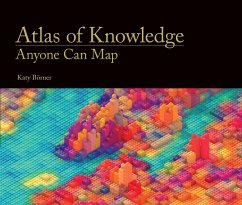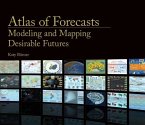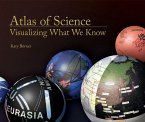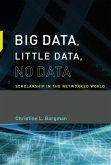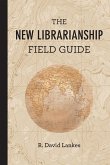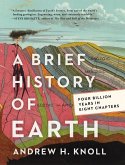The power of mapping: principles for visualizing knowledge, illustrated by many stunning large-scale, full-color maps.Maps of physical spaces locate us in the world and help us navigate unfamiliar routes. Maps of topical spaces help us visualize the extent and structure of our collective knowledge; they reveal bursts of activity, pathways of ideas, and borders that beg to be crossed. This book, from the author of Atlas of Science, describes the power of topical maps, providing readers with principles for visualizing knowledge and offering as examples forty large-scale and more than 100 small-scale full-color maps. Today, data literacy is becoming as important as language literacy. Well-designed visualizations can rescue us from a sea of data, helping us to make sense of information, connect ideas, and make better decisions in real time. In Atlas of Knowledge, leading visualization expert Katy Börner makes the case for a systems science approach to science and technology studies and explains different types and levels of analysis. Drawing on fifteen years of teaching and tool development, she introduces a theoretical framework meant to guide readers through user and task analysis; data preparation, analysis, and visualization; visualization deployment; and the interpretation of science maps. To exemplify the framework, the Atlas features striking and enlightening new maps from the popular Places & Spaces: Mapping Science exhibit that range from Key Events in the Development of the Video Tape Recorder to Mobile Landscapes: Location Data from Cell Phones for Urban Analysis to Literary Empires: Mapping Temporal and Spatial Settings of Victorian Poetry to Seeing Standards: A Visualization of the Metadata Universe. She also discusses the possible effect of science maps on the practice of science.
Hinweis: Dieser Artikel kann nur an eine deutsche Lieferadresse ausgeliefert werden.
Hinweis: Dieser Artikel kann nur an eine deutsche Lieferadresse ausgeliefert werden.
This visually stunning, complex, and thought-provoking publication will be of particular interest to information visualization professionals and serve as a revelation to informed nonspecialists. Library Journal
Whether you read it cover to cover or just browse the extraordinary examples, you put it down inspired. Nature
In addition to the practical advice that Atlas of Knowledge: Anyone Can Map offers, the overall, lasting effect of the book is one of awe; the book sets the reader's mind to wander about the myriad ways that displaying and visualizing data may help us live more healthy, effective, and robust lives. Mathematical Association of America
The Atlas of Knowledge is an excellent general reference book for those interested in scientific approaches to computer-generated data visualization. The Globe. Journal of the Australian and New Zealand Map Society Inc.
Whether you read it cover to cover or just browse the extraordinary examples, you put it down inspired. Nature
In addition to the practical advice that Atlas of Knowledge: Anyone Can Map offers, the overall, lasting effect of the book is one of awe; the book sets the reader's mind to wander about the myriad ways that displaying and visualizing data may help us live more healthy, effective, and robust lives. Mathematical Association of America
The Atlas of Knowledge is an excellent general reference book for those interested in scientific approaches to computer-generated data visualization. The Globe. Journal of the Australian and New Zealand Map Society Inc.

